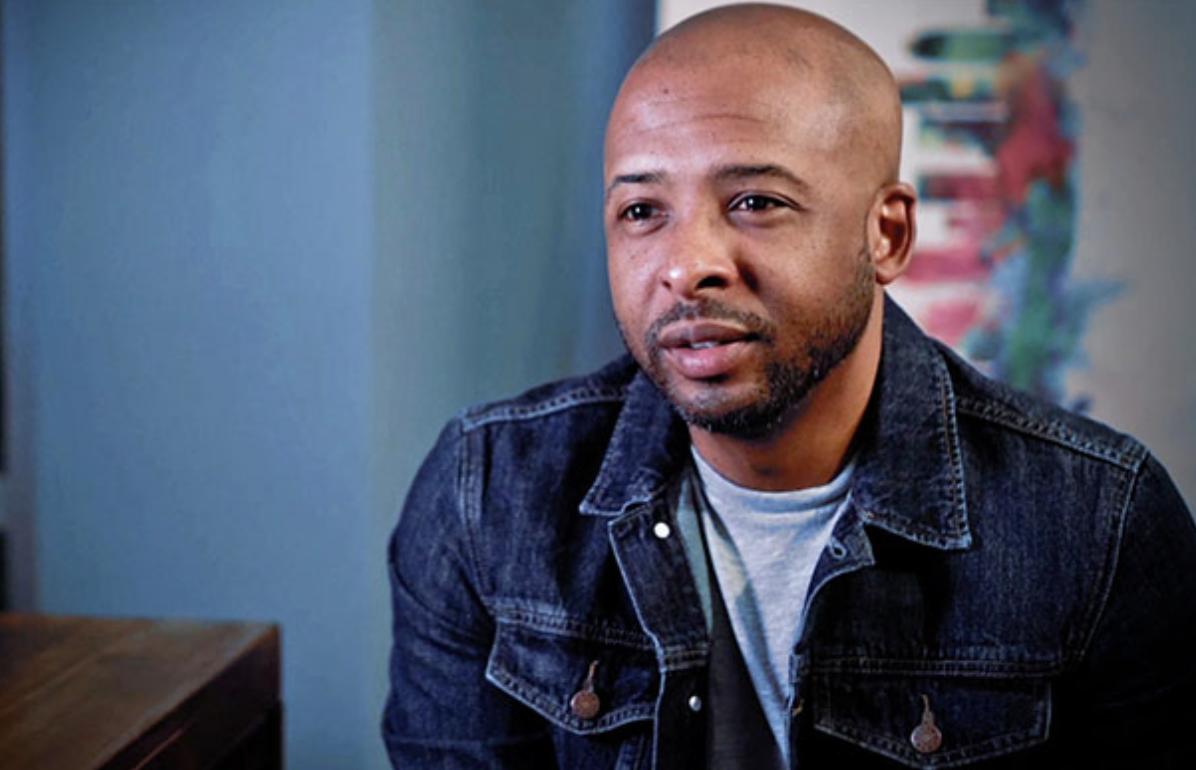Unarmed Man. Written and directed by Harold Jackson III. A Chesapeake Film Festival feature streaming on its website beginning 9 a.m. Oct. 1 and running through midnight Oct. 4. A program of all 46 films can be found at chesapeakeffvirtual2020.com with tips on streaming directly to your home TV. Streaming is free; contributions encouraged.
Just the title, “Unarmed Man,” pointed my mind in the direction of a white cop murdering an innocent man driving while black. We all make assumptions, I suppose, and I confess that mine have lately tilted toward considering black men who matter like the rest of us are too often victims of racist cops, sometimes under sketchy circumstances.
This film did not change my mind about racial profiling or how such assumptions by armed police officers can and too often do result in the death, in particular, of men of color. But each case should be considered as this meticulous examination of a true-story death-by-cop “incident” on it’s specific and nuanced circumstances. I purposefully avoided identifying the race of director Harold Jackson III before viewing “Unarmed Man.” So as a spoiler courtesy, I will not reveal his race here. The story stands on its merits.
The real-life police officer, Greg Yelich, is played here by Danny Gavigan as a man of conscience, though we have no way of discerning whether his troubled demeanor is over his concern for his own culpability in the death of an unarmed man or his fate as a suspect as a murderer. Likely it is both,
We barely meet the victim, Cordell Pierce, played by DeWayne Foote with just a line or two as he is depicted behind the wheel of a car that is pulled over for a minor infraction. He announces to Yelich that he has a legal gun in his possession, in the glove box of his car. Yelich says he saw him reach for something. The officer fired five shots into the suspect’s body, killing him as his girlfriend, Deena Rodgers (Tia Dae) and daughter, played by Peyton Reavis, are witnesses to Pierce’s violent death.
But the film hardly gives us a glance of the deadly violence that leads to intense interrogation of the cop by a police investigator, Aaron Williamson, played by a black man, Shaun Woodland. Williamson comes across as both fair minded and skeptical. He listens intently to the white cop’s account of the “incident,” betraying neither racial nor institutional bias toward his subject. Still, the humanity and innate biases of both men emerge in moments of stressful interchange between them.
I am not aware of the acts regarding Officer Yelich and the shooting death of Cordell Pierce other than what we see in the film. What comes across to me is a deeply disturbing and ultimately impenetrable question of guilt or innocence. Yelich says he sees the driver reaching “for something”–perhaps a gun that is, in fact, found in the glove box–as his partner stands at that side of the car. Both men’s lives may have been in jeopardy in that split second. Yet only the driving-while-black man lies dead in the end.
There is a charge against Yelich, the cop, and a trial and verdict I will not reveal here so as not to spoil the subtle lineup of “facts” that demarcate guilty and not guilty.
I came away from this film thinking, as many of us have over the last few months, of George Floyd, Breonna Taylor and too many others. Eight-and-a-half minutes of knee on the neck. An unarmed woman shot to death in her own bed. This case was nothing like that. We can only come away with the conclusion that both black and blue lives matter. All lives matter. Yours and mine and everyone we have ever known and loved.
Steve Parks is a retired arts critic and columnist now living in Easton.




Write a Letter to the Editor on this Article
We encourage readers to offer their point of view on this article by submitting the following form. Editing is sometimes necessary and is done at the discretion of the editorial staff.